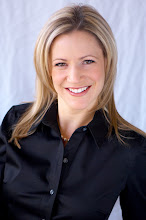While most of us have gotten used to incredibly low interest rates, this isn't the norm. Prime rate has been at 2.25% for the last 11 months so when we hear that it will rise, we generally panic. However, you need to ask yourself "are you comfortable in your current financial situation to sustain an increase in prime back to where it normally is?" If prime rate has averaged roughly 4.81% over the last 5 years, and you have a built in discount of say, prime minus 0.6% - that means your rate would be 4.2% on average. Translated into a monthly payment via any mortgage calculator on the web and see if you are comfortable with that figure. This is roughly what your payments would have started out at back in 2007 if we use the above example. If something has changed in your life and you are no longer comfortable with that figure or you feel more secure in a fixed rate, you may want to lock in.
Leah
ARTICLE from Canadian Mortgage Trends:
With people banking on the main interest rate going up in June, it seems like a good time to for homeowners to lock in their fixed-rate mortgages.
About 12 percent of mortgage holders with fixed-rate mortgages "locked in," or switched from variable rate mortgages, in the past year, , according to a report this month by Will Dunning, chief economist at the CAAMP , and another 10 percent had already switched from variable more than a year ago.
The rate for conventional five-year mortgages was at 6.25 per cent at the end of April, nearing the 5.25 per cent rate at the end of May last year - the lowest since 1973 when the Bank of Canada data began.
"As interest rates rise, expect home buyers to increasingly opt for fixed-rate loans, in turn leaving banks with more fixed-rate assets to hedge in the swap market" said Mohammed Ahmed, a rates strategist at Canadian Imperial Bank of Commerce in Toronto.
Housing starts rose to a seasonally adjusted annual pace of 201,700 units last month.

No comments:
Post a Comment